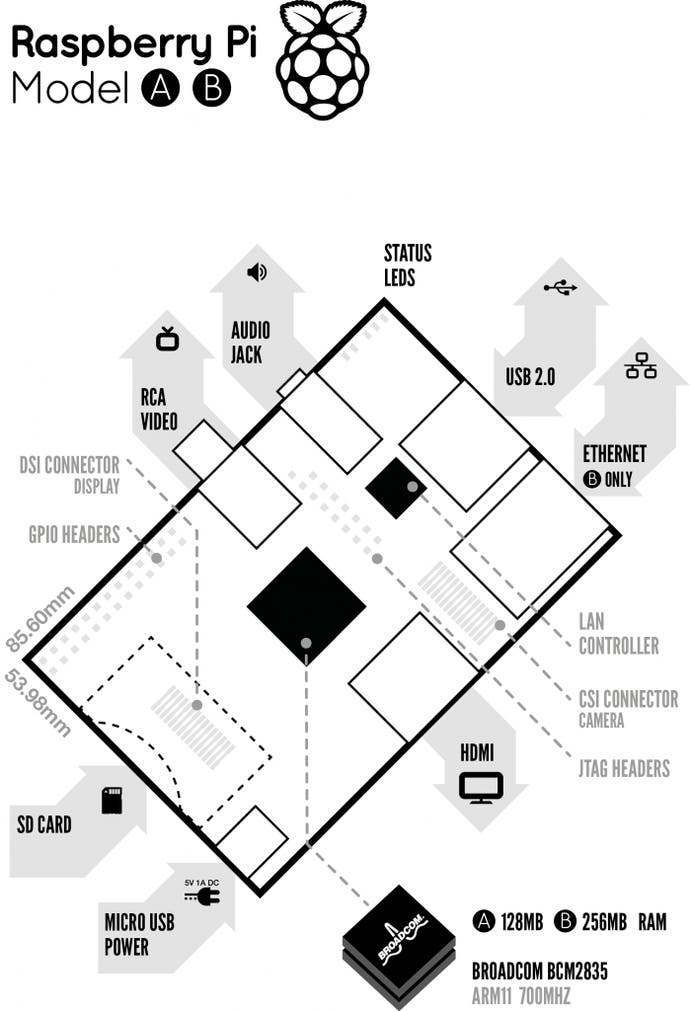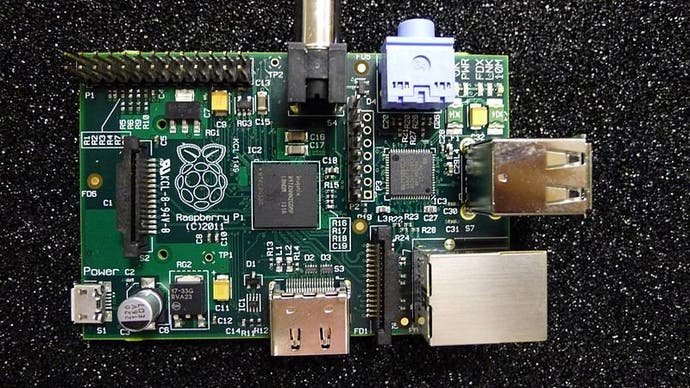First £20 Raspberry Pi PCs arriving January
To revive computing in young and beyond.
Production of the Raspberry Pi has begun!
The what?
The credit-card sized PC that costs either $24 (£16 - Model A) or $35 (£23 - Model B, has Ethernet port).

"Raspberry Pis started being made a couple of days ago, but I was forbidden to tell you about it until signed contracts and receipts for payment had arrived - it's been killing me, especially since I've had tens of you asking me when manufacturing would start every day for the last few weeks," wrote Raspberry Pi Founation volunteer and spokesperson "Liz".
"This means that the first units from the first batch will be rolling off the line at the end of January."
Broadly, the Raspberry Pi movement hopes to revitalise computing among the young.
In days of old, kids messed around with and therefore learnt about Amigas, Commodore 64s, BBC Micros and Spectrum ZXs because they were cool.
But then along came consoles, and away went bedroom tinkering.
"We don't claim to have all the answers. We don't think that the Raspberry Pi is a fix to all of the world's computing issues; we do believe that we can be a catalyst. "
The Raspberry Pi Foundation
And the dot-com bubble burst. And schools stuck by rubbish ICT lessons - see today's fabulous news about that.
The result was a drop-off in computing skills and computing interest, something Cambridge lecturer Eben Upton noticed and then decided to change.
So Upton and friends used their spare time to create the Raspberry Pi. Elite creator David Braben joined the movement along the way.
The Raspberry Pi is an ARM GNU/Linux box that can be plugged into a TV and keyboard. It can handle spreadsheets, word-processing, Blu-ray quality video playback and even games. See the comments thread below for a video of the Raspberry Pi powering Quake 3.

Its system on a chip (SOC) is a Broadcom BCM2835..
The Raspberry Pi FAQ explained: "This contains an ARM1176JZFS, with floating point, running at 700Mhz, and a Videocore 4 GPU.
"The GPU is capable of Blu-ray quality playback, using H.264 at 40MBits/s. It has a fast 3D core accessed using the supplied OpenGL ES2.0 and OpenVG libraries."
The Raspberry Pi is powered by a 5v micro USB lead or 4xAA batteries.
"We've had enormous interest, support and help from the educational community, and we've been delighted and a little humbled by the number of enquiries from agencies and people far away from our original targets for the device," reads the Raspberry Pi website.
"Developing countries are interested in the Raspberry Pi as productivity devices in areas that simply can't afford the power and hardware needed to run a traditional desktop PC; hospitals and museums have contacted us to find out about using the Raspberry Pi to drive display devices. Parents of severely disabled kids have talked to us about monitoring and accessibility applications; and there seem to be a million and one people out there with hot soldering irons who want to make a robot.

"We want to see cheap, accessible, programmable computers everywhere ... We want owning a truly personal computer to be normal for children.
The Raspberry Pi Foundation
"We don't claim to have all the answers," the blurb concludes. "We don't think that the Raspberry Pi is a fix to all of the world's computing issues; we do believe that we can be a catalyst.
"We want to see cheap, accessible, programmable computers everywhere; we actively encourage other companies to clone what we're doing. We want to break the paradigm where without spending hundreds of pounds on a PC, families can't use the internet. We want owning a truly personal computer to be normal for children. We think that 2012 is going to be a very exciting year."
All the UK needs now is tax breaks. What?
Incidentally, on that topic: Raspberry Pi manufacture has begun in Taiwan and China. The Raspberry Pi Foundation would like to make the computer in the UK, but crippling tax laws make this impossible. For now.
" Right now, the way things stand means that a company doing its manufacturing abroad, depriving the UK economy, gets a tax break," explained Raspberry Pi volunteer "Liz".
"It's an absolutely mad way for the Inland Revenue to be running things, and it's an issue we've taken up with the Department for Business, Innovation and Skills."

